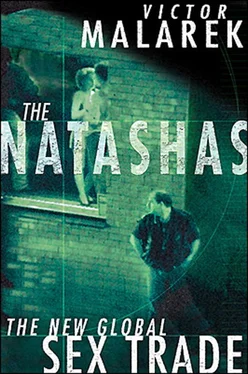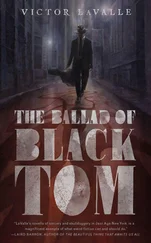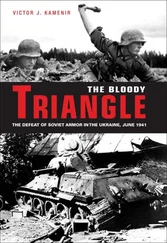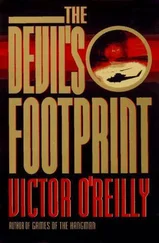For two years running, the State Department has given Russia sour reviews in its annual TIP reports. The 2003 report didn’t sound any different, highlighting the areas where Russia still has considerable work to do:
Russia does not currently have anti-trafficking legislation… Russia’s legal structure still does not allow for effective prosecution of traffickers, nor for victim assistance, and efforts to prosecute traffickers for related crimes have been largely unsuccessful… One major obstacle to active investigations and prosecutions has been the weak legal structure related to trafficking crimes, and the small number of investigations conducted in the past year mostly failed for lack of evidence… Police do not respond actively to victims’ complaints pursuant to the belief that any criminally proscribed behavior, such as slavery and rape, mostly happens after victims have left their jurisdiction… Many NGOs report corruption as a major hindrance.
All in all, a fairly damning start. But in a surprising about-face, the report begins to applaud Russia’s ostensible progress. It notes that the Duma, which is the Russian parliament, is considering passing an anti-trafficking law and has improvements in public education with various public awareness campaigns. This apparently scored major points in the State Department, which elevated Russia to the safe zone of Tier Two and, in one fell swoop, enabled Moscow to dodge a disconcerting diplomatic dart.
At a news conference, Miller defended the promotion, referring to Russia’s “Herculean effort in drafting what could well be a model anti-trafficking law.” He noted that the U.S. will be monitoring Russia closely to see how it performs over the coming year: “We’re going to look and see if this law is indeed passed, and if on the ground it is implemented.” Well, Russia passed its law in December 2003, but as of spring 2004, it has not made a dent. There haven’t been any real crackdowns, major police raids or arrests; there’ve been no charges, no prosecutions and no convictions under the new act.
Ironically, every single Eastern European nation—all with shameful records as sending countries—is now safely perched on the Tier Two rung as well.
Yet while the State Department upgraded Russia for merely considering the passage of a law, it wasn’t so kind to other players. For example, Greece actually passed an anti-trafficking law in 2002, but, unlike Russia, it didn’t get promoted to Tier Two. That’s because, according to the 2003 TIP report, the Greek government “has not yet effectively enforced the law.” Sounds an awful lot like Russia. Why such an obvious double standard? Doesn’t enforcement mean enforcement, regardless of where it’s taking place? To add to the irony, the report on Greece went on to say that “victim assistance mechanisms have not yet been implemented and NGO co-operation remains weak.” Weak in Russia and also weak in Greece. Yet, one gets rewarded, while the other earns a diplomatic slap.
In the decision-making bull pen at the State Department, it is clear that, when it comes to country rankings, other factors are at play. Consider for a moment a number of other countries that managed to land safely on Tier Two in the latest report: Albania, Bulgaria, Belarus, Japan, Israel, Ukraine, Moldova… and (this one is unbelievable) Serbia, land of the notorious breaking grounds! Does this make any sense?
Japan, for example, managed to hang on to Tier Two for a third straight year despite the fact it still had “no national plan of action” or any law specifically prohibiting the crime. The TIP report notes that the number of prosecutions “has been too few and the penalties too weak to act as an effective deterrent against professional syndicates involved in trafficking.” In addition, Japan treats victims as illegal immigrants and quickly deports them.
After receiving a Tier Three rating in the 2001 TIP report, Israel was elevated to Tier Two in the report’s second year and managed to hang on to that ranking this last year as well. The 2003 report notes that the country’s maximum penalty for trafficking is twenty years in prison, commensurate with those for rape and assault. Yet the majority of cases are resolved through plea bargains “that result, on the average, in sentences of about two years.” The report also acknowledges that a number of individual policemen are being investigated for corruption, specifically for taking bribes or tipping off brothels about imminent raids.
Incredibly, despite mounds of hard evidence to the contrary, the State Department continues to play down the seriousness of what is happening in Israel by stating that “these instances of corruption are not widespread.” Yet on March 27, 2003, three months before the TIP report was released, Israeli NGOs, headed by the Hotline for Migrant Workers and the Awareness Center, presented an alarming report to the UN Commission on Human Rights. It speaks of two types of collaboration between traffickers and policemen: “a passive manner where policemen visit the brothels as clients, and an active manner which involves cooperation with traffickers and tipping off of police raids.” The report also notes that
out of one hundred trafficked women interviewed by the Hotline and Isha le’Isha [the Haifa Feminist Center], forty-three claimed that policemen visited the brothel as customers. Seventeen women claimed that policemen who entered the brothels officially, in order to make passport checks, later returned as clients… In some cases brothels are closed just before a police raid, so the police find empty brothels. Some women complained that policemen would tip off the pimps about planned raids. Eleven women stated that the brothel owner was on friendly terms with policemen, and two women claimed to have seen money pass between them.
Did the State Department bureaucrats even read this report? Or did they simply discard it because it didn’t suit U.S. needs?
Another disquieting aspect of the 2003 TIP report is the preference status it accords most nations in the European Union. Every year, tens of thousands of women and girls are trafficked into Austria, Germany, France, Belgium, Switzerland, the United Kingdom, Italy, Spain and the Netherlands. They’re delivered to satisfy the burgeoning demand by the prostitution industry. For three years in a row, every single one of these countries was placed safely on Tier One. Every year, the annual TIP report proclaims that these nations are meeting the “minimum standards” for the elimination of trafficking. The situation throughout the European Union, however, continues to deteriorate.
A key reason is that Germany and the Netherlands have recently legalized prostitution. They purport that doing so is an ideal way to deal with trafficking. They maintain that legalization will better protect the rights of the women entering the trade—an argument that is nothing short of specious. The only tangible effect of such legalization is that the state effectively becomes another pimp, living off the avails of women in prostitution through taxation, and reaping huge benefits from increased foreign sex tourism.
The unspoken reality is that German and Dutch women are not the ones lining up to enter the trade. They have real jobs that don’t require them to shed their clothes and have their bodies invaded by a dozen men a day. As a result, brothel owners have had to meet the growing demand by recruiting the supply from nearby Russia, Moldova, Romania and Ukraine. You’ll be hard-pressed to hear Dutch or German spoken in the brothels and alleyways. What you’re more likely to hear is Ukrainian, Russian, Moldovan and Romanian. In fact, a report by the International Organization of Migration states that in the Netherlands “nearly 70 percent of trafficked women were from CEEC [Central and Eastern European Countries].” In Germany that figure is as high as 87 percent.
Читать дальше












